Farrinstitute is reader-supported. We may receive commissions on purchases made through links on our site.
First Look:
For those that suffer from a deficit hyperactivity disorder or impaired focus, you know how frustrating it can be to get through a day’s work feeling productive and good about yourself. It doesn’t have to be that way, though.
Adderall is one of the most popular pharmaceuticals to improve focus and energy levels. For this reason, it’s often prescribed for those that have ADHD (attention deficit hyperactivity disorder). But did you know there are Adderall alternatives?
An alternative for Adderall might be suitable for those suffering from deficit hyperactivity or those that have a less severe case. Either way, these supplements can boost brain health and optimize the nervous system, with fewer side effects to boot.
Let’s look at the best natural alternatives to Adderall and how they compare across the board.
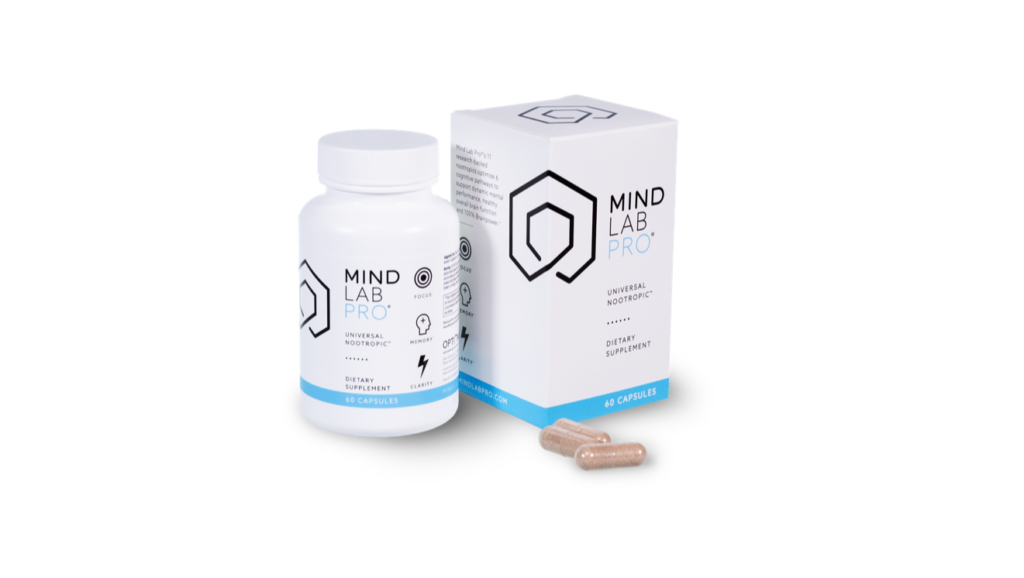
This natural alternative to Adderall contains various nootropics. This group of drugs is often referred to as “smart drugs” or “brain boosters”, created to enhance cognitive function [1]. Mind Lab Pro is free of gluten, allergens, caffeine, and is vegan-friendly, which is useful for those with common dietary restrictions.
Mind Lab Pro has eleven active ingredients:
Citicoline is an energy-promoter and increases the productivity of neurotransmitters, which helps protect brain health long term from diseases such as Alzheimer [2]. It’s found in many supplements as it’s touted to improve focus, enhance mood, memory, and attention, much like Adderall. Citicoline also helps to synthesize Phosphatidylserine, listed below [3].
Phosphatidylserine is a common phospholipid that makes up around 15 percent of the neural tissue in the brain, which indicates its vital role in cell and energy production [4]. This phospholipid may also increase immunity and the nerve growth factor [5].
Bacopa Monnieri, also known as “water hyssop”, is a natural herb and makes up around 24 percent of Mind Body Lab. It could help with hyperactivity disorder, due to its positive effect on memory recall [6]. Bacopa Monnieri may also speed up cognitive processing and boost relaxation.
Organic Lion’s Mane Mushroom is an edible fungus that functions as a safe, long term solution to boost brain health. Used for years in Chinese medicine, it aids in the regeneration of neurons [7]. This mushroom also improves brain plasticity, or one’s cognitive ability to adapt and accept change, an essential element of learning [8].
Maritime Pine Bark Extract is another natural element commonly found in supplements. It’s a powerful antioxidant, which means it helps delay any cognitive damage to the brain caused by free radicals [9]. These radicals are brought on by age and other toxins throughout our lives.
L-Tyrosine improves mood, processing, and memory by supporting the neurotransmitter, catecholamine. This amino acid may also help regulate the nervous system and alleviate the stress that often stands in the way of focus [10].
L-Theanine is another one that’s found naturally in many teas. It increases the functioning of alpha brain waves that promote both creativity and relaxation [11]. These waves are often stunted in those that have ADHD.
Rhodiola Rosea is an herb that’s considered an “adaptogen”, this means it has a natural ability to help ward off stress [12]. It’s also used to promote processing, memory recall, mood, and attention span.
Vitamins B6, B9, and B12 are often together in supplements. They’re suitable as natural alternatives to Adderall, as they enhance mental performance overall [13].
It’s one of the best alternatives for Adderall because the side effects are non-existent. Mind Lab Pro supplements are natural. Unlike many other ADHD alternatives, it doesn’t contain caffeine, so it shouldn’t disturb your sleep, either.
Bottom Line
Mind Lab Pro is a powerful Adderall alternative for many including the elderly and students. It can be of particular use to athletes and other high-performance individuals.
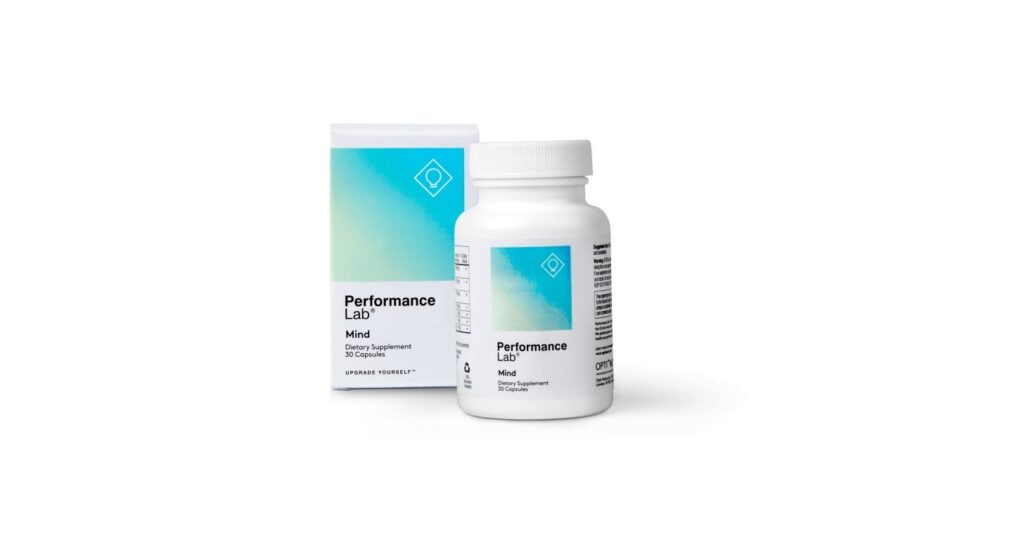
Performance Lab keeps things simple with minimal ingredients and is a popular option for those suffering from ADHD. The company claims that this natural alternative to Adderall is one of the only nootropics to not only help you focus and boost brain power but aid in recovery, too.
Performance Lab Nootropics is a patented combination of:
Cognizin CiticolineⓇ is a patented form of Citicoline often prescribed for individuals who have suffered strokes, have dementia, or other cognitive-related conditions. This allergen-free and vegetarian nootropic functions as an Adderall alternative where it aids in memory recall and supports faster processing times [14].
Sharp-PSⓇ Green is a branded phosphatidylserine, which is a common ingredient found in natural supplements. This healthy fat stimulates the creation of brain cells and neural repair. It can also aid in building neural connections, optimizing the learning process for those with ADHD [15].
L-Tyrosine enhances brain and physical performance and curbs stress [16]. It’s one of many amino acids that’s been clinically tested with proven advantages for high performers including a better mood.
Maritime Pine Bark Extract is an antioxidant that helps ward off free radicals that slow down brain processing and cell regeneration. This makes it useful as an Adderall alternative, where it also preps blood vessels for optimal transport of oxygen, glucose, and micronutrients.
As a newer nootropic on the market, Performance Lab has very few documented cases of unwanted side effects. Overall, it’s deemed safe as one of the alternatives to Adderall, so long as it’s not used in conjunction with similar pharmaceuticals.
Performance Lab is one of the few supplements for ADHD that contains minimal ingredients and is also budget-friendly. It has more L-Tyrosine per milligram than most other options available, which makes it particularly suitable for those that suffer from mood swings or depression.
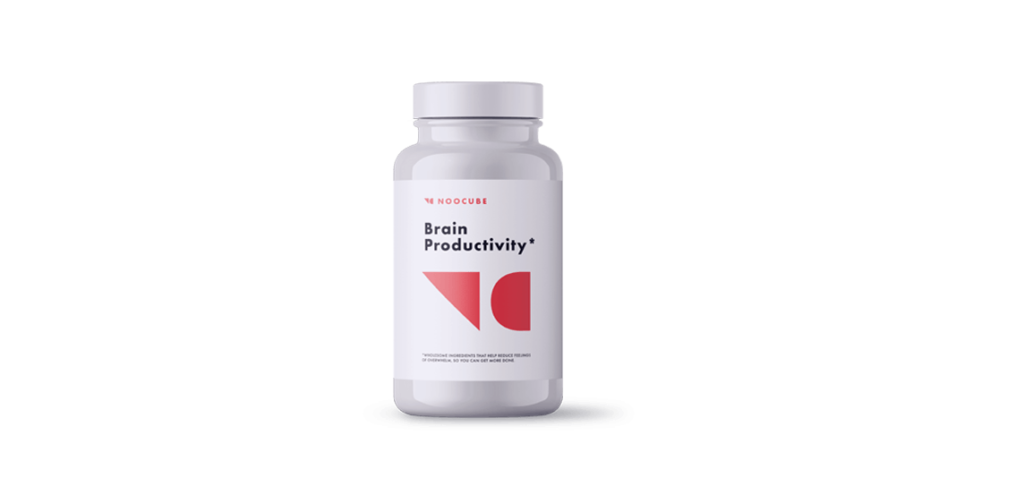
Foregoing Adderall could be possible with supplements and NooCube provides another alternative. It’s a suitable option for those interested in herbal remedies as it contains more than any other supplement on our list.
Noocube contains seven ingredients:
Alpha GPC makes this supplement stand out as one of its unique ingredients. Alpha GPC increases acetylcholine, a chemical messenger that helps brain cells communicate [17]. This indicates that it aids in concentration, memory, and more, all useful for ADHD.
Huperzine A derives from the Chinese club moss plant and also supports the production of acetylcholine, listed above. It’s proven to be effective in treating neurodegenerative disorders such as Alzheimer [18].
Cat’s Claw comes from a vine in the Amazonian rainforest and is an anti-inflammatory [19]. This herb contains powerful antioxidants that are said to help with cognitive performance and combating the effects of stress brought on by ADHD. It may also aid in reducing fatigue.
Bacopa is a flower and natural remedy, which supports relaxation, memory, and learning speed.
Oat Straw is another herb that’s often ingested as a tea. It functions as a calming agent, without a drowsy effect, boosts mental clarity, and may speed up cognitive processing, as well.
L-Tyrosine and L-Theanine are amino acids that enhance brain performance and lower stress. Some have even used these to lower their daily caffeine intake, aside from helping with ADHD.
So far, no negative side effects have been documented for NooCube as it’s mainly herbal. If you’re pregnant or currently taking other medication, it’s recommended to check with your doctor before consuming it.
NooCube is packed full of natural herbs that can help alleviate the stress brought on by ADHD, without the damaging effects of Adderall. It could be one of the best alternatives for elderly individuals who need a lighter medication that’s still successful.
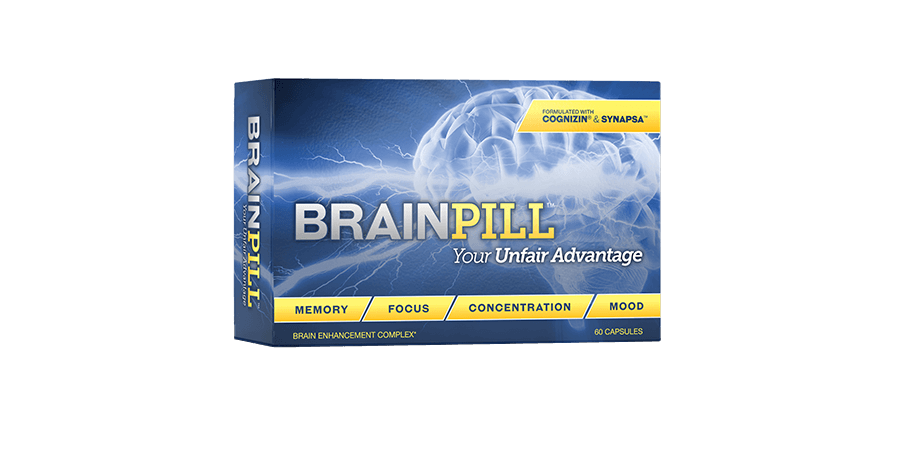
BrainPill contains popular nootropics to offset the disadvantages that come with ADHD. As an alternative to Adderall, this supplement promotes better energy levels and concentration.
BrainPill is made up of 13 ingredients:
Cognizin CiticolineⓇ has long been prescribed as a secondary option to Adderall with proven benefits and results. It promotes better energy levels, focus, and mental alertness. It also has a successful track record for those that have suffered a stroke.
L-Tyrosine is an amino acid often found in tea that boosts performance, both mentally and physically. Amino acids help the body synthesize protein, which indicates they play a crucial role in helping us maintain blood sugar levels and stay energized [20].
Phosphatidylserine is a naturally-occurring phospholipid, an important fatty tissue that helps the body maintain cellular function. This includes memory recall and aiding in concentration levels. Vitamin B12 has been touted as essential for stamina, problem-solving, and more. It may also help those that suffer from anemia and gastritis [21]. L-Theanine is the second amino acid in BrainPill. For those that want to forego Adderall, this natural ingredient can help lower stress levels while supporting relaxation and creativity.
Vitamin B6 plays a critical role in the body’s metabolic processes and helps lower stress levels [22]. It also aids in memory function, which is a common complaint among those with ADHD.
Pantothenic Acid (Vitamin B5) is one of the multiple B vitamins that help the body convert carbohydrates into energy. This, in turn, provides brain power and increases focus.
Bacopa Monnieri – SynapsaⓇ has long been used in Eastern medicines as an herbal remedy for memory recall and faster learning.
Huperzine A is yet another herb and it supports the functioning of acetylcholine, which is a neurotransmitter. This messenger is part of the parasympathetic nervous system and aids in both relaxation and communication between the cells.
Folic Acid (Vitamin B9) has been proven to slow the cognitive decline that comes with age, boosting memory recall, and concentration [23]. Similar to other B vitamins, folic acid plays a vital role in converting carbs into fuel, providing energy.
Vinpocetine comes from the periwinkle plant and has both anti-oxidation and anti-inflammatory features [24]. This indicates it may support blood flow to the brain, improving processing and memory recall.
Gingko Biloba is a popular herbal supplement, known for being an antioxidant and providing mental clarity [25].
DHA Complex is a fatty acid. As an Omega-3, it’s associated with improving both cardiovascular and cognitive functions [26].
As a cognitive enhancer, there are very few adverse side effects found. The only documented circumstances came from an overdose or abuse of the drug.
Brain pill is one of the heavier options out there, thanks to the 13 ingredients included. While it could be prescribed to most adults, excluding pregnant women, it could be best for those that need a stronger supplement for ADHD.
Making Adderall at home isn’t a responsible option, especially if you’ve been diagnosed with ADHD and would benefit from a tested medication.
Instead, you can take advantage of one of the natural Adderall alternatives on this list.
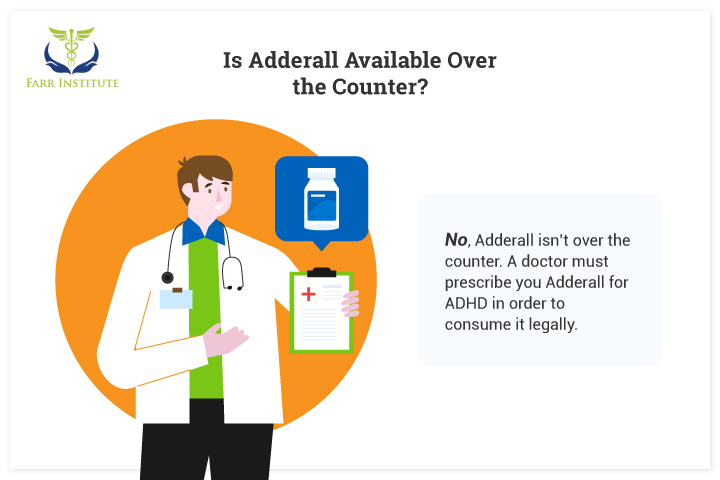
While no natural alternative to Adderall is exactly similar, the best natural Adderall alternatives feature proprietary blends of safer options.
These blends feature ingredients that mimic the effects of Adderall.
Do you suffer from ADHD, but can’t stand the negative side effects of Adderall? A natural Adderall alternative might be a viable option for you.
Each brand features different elements, depending on your personal needs. However, based on research, Mind Body Lab provides the most well-rounded and exhaustive combination when compared to other alternatives.
A second choice could be NooCube, thanks to the numerous herbs it features. The more natural, the better, and this brand marks the spot on that.
Natural alternatives to Adderall can still help you focus and offset the difficulties that come with ADHD, without a needed prescription.
{
“@context”: “https://schema.org”,
“@type”: “Article”,
“mainEntityOfPage”: {
“@type”: “WebPage”,
“@id”: “https://farrinstitute.org/natural-adderall-alternatives/”
},
“headline”: “Adderall Alternatives: Natural OTC Supplements To Increase Focus”,
“description”: “For those that suffer from a deficit hyperactivity disorder or impaired focus, you know how frustrating it can be to get through a day’s work feeling productive and good about yourself. It doesn’t have to be that way, though.”,
“image”: “https://farrinstitute.org/wp-content/uploads/2021/03/adderal-alternatives-post-featured-image.png.webp”,
“author”: {
“@type”: “”,
“name”: “Jonathan Hoarau”,
“url”: “https://farrinstitute.org/author/jonathan-hoarau/”
},
“publisher”: {
“@type”: “Organization”,
“name”: “Farr Institute”,
“logo”: {
“@type”: “ImageObject”,
“url”: “https://farrinstitute.org/”
}
},
“datePublished”: “2020-10-03”,
“dateModified”: “2023-05-29”
}
1. Suliman, Noor Azuin, et al. “Establishing Natural Nootropics: Recent Molecular Enhancement Influenced by Natural Nootropic.” Evidence-Based Complementary and Alternative Medicine : ECAM, Hindawi Publishing Corporation, 2016, www.ncbi.nlm.nih.gov/pmc/articles/PMC5021479/.
2. Iulia, Chitu, et al. “Citicoline – a Neuroprotector with Proven Effects on Glaucomatous Disease.” Romanian Journal of Ophthalmology, Romanian Society of Ophthalmology, 2017, www.ncbi.nlm.nih.gov/pmc/articles/PMC5710031/.
3. Grieb, Pawel. “Neuroprotective Properties of Citicoline: Facts, Doubts and Unresolved Issues.” CNS Drugs, Springer International Publishing, Mar. 2014, www.ncbi.nlm.nih.gov/pmc/articles/PMC3933742/.
4. Kim, Hee-Yong, et al. “Phosphatidylserine in the Brain: Metabolism and Function.” Progress in Lipid Research, U.S. National Library of Medicine, Oct. 2014, www.ncbi.nlm.nih.gov/pmc/articles/PMC4258547/.
5. Naftelberg, Shiran, et al. “Phosphatidylserine Ameliorates Neurodegenerative Symptoms and Enhances Axonal Transport in a Mouse Model of Familial Dysautonomia.” PLoS Genetics, Public Library of Science, 20 Dec. 2016, www.ncbi.nlm.nih.gov/pmc/articles/PMC5172536/.
6. Kumar, Navneet, et al. “Efficacy of Standardized Extract of Bacopa Monnieri (Bacognize®) on Cognitive Functions of Medical Students: A Six-Week, Randomized Placebo-Controlled Trial.” Evidence-Based Complementary and Alternative Medicine : ECAM, Hindawi Publishing Corporation, 2016, www.ncbi.nlm.nih.gov/pmc/articles/PMC5075615/.
7. Sabaratnam, Vikineswary, et al. “Neuronal Health – Can Culinary and Medicinal Mushrooms Help?” Journal of Traditional and Complementary Medicine, Medknow Publications & Media Pvt Ltd, Jan. 2013, www.ncbi.nlm.nih.gov/pmc/articles/PMC3924982/.
8. Mateos-Aparicio, Pedro, and Antonio Rodríguez-Moreno. “The Impact of Studying Brain Plasticity.” Frontiers in Cellular Neuroscience, Frontiers Media S.A., 27 Feb. 2019, www.ncbi.nlm.nih.gov/pmc/articles/PMC6400842/.
9. Iravani, S, and B Zolfaghari. “Pharmaceutical and Nutraceutical Effects of Pinus Pinaster Bark Extract.” Research in Pharmaceutical Sciences, Medknow Publications Pvt Ltd, Jan. 2011, www.ncbi.nlm.nih.gov/pmc/articles/PMC3203267/.
10. Young, Simon N. “L-Tyrosine to Alleviate the Effects of Stress?” Journal of Psychiatry & Neuroscience : JPN, U.S. National Library of Medicine, May 2007, www.ncbi.nlm.nih.gov/pmc/articles/PMC1863555/.
11. Grieb, Pawel. “Neuroprotective Properties of Citicoline: Facts, Doubts and Unresolved Issues.” CNS Drugs, Springer International Publishing, Mar. 2014, www.ncbi.nlm.nih.gov/pmc/articles/PMC3933742/.
12. Grieb, Pawel. “Neuroprotective Properties of Citicoline: Facts, Doubts and Unresolved Issues.” CNS Drugs, Springer International Publishing, Mar. 2014, www.ncbi.nlm.nih.gov/pmc/articles/PMC3933742/.
13. Kennedy, David O. “B Vitamins and the Brain: Mechanisms, Dose and Efficacy–A Review.” Nutrients, MDPI, 27 Jan. 2016, www.ncbi.nlm.nih.gov/pmc/articles/PMC4772032/.
14. Nakazaki, Eri, et al. “Effect of Citicoline on Memory Function in Healthy Order Adults: A Randomized, Double-Blind, Placebo-Controlled Clinical Trial.” OUP Academic, Oxford University Press, 29 May 2020, academic.oup.com/cdn/article/4/Supplement_2/1227/5845231.
15. Grieb, Pawel. “Neuroprotective Properties of Citicoline: Facts, Doubts and Unresolved Issues.” CNS Drugs, Springer International Publishing, Mar. 2014, www.ncbi.nlm.nih.gov/pmc/articles/PMC3933742/.
16. Attipoe, Selasi, et al. “Tyrosine for Mitigating Stress and Enhancing Performance in Healthy Adult Humans, a Rapid Evidence Assessment of the Literature.” OUP Academic, Oxford University Press, 1 July 2015, academic.oup.com/milmed/article/180/7/754/4160625.
17. Hasselmo, Michael E. “The Role of Acetylcholine in Learning and Memory.” Current Opinion in Neurobiology, U.S. National Library of Medicine, Dec. 2006, www.ncbi.nlm.nih.gov/pmc/articles/PMC2659740/.
18. Qian, Zhong Ming, and Ya Ke. “Huperzine A: Is It an Effective Disease-Modifying Drug for Alzheimer’s Disease?” Frontiers in Aging Neuroscience, Frontiers Media S.A., 19 Aug. 2014, www.ncbi.nlm.nih.gov/pmc/articles/PMC4137276/.
19. Sandoval M;Okuhama NN;Zhang XJ;Condezo LA;Lao J;Angeles’ FM;Musah RA;Bobrowski P;Miller MJ; “Anti-Inflammatory and Antioxidant Activities of Cat’s Claw (Uncaria Tomentosa and Uncaria Guianensis) Are Independent of Their Alkaloid Content.” Phytomedicine : International Journal of Phytotherapy and Phytopharmacology, U.S. National Library of Medicine, pubmed.ncbi.nlm.nih.gov/12120814/.
20. National Research Council (US) Subcommittee on the Tenth Edition of the Recommended Dietary Allowances. “Protein and Amino Acids.” Recommended Dietary Allowances: 10th Edition., U.S. National Library of Medicine, 1 Jan. 1989, www.ncbi.nlm.nih.gov/books/NBK234922/.
21. O’Leary, Fiona, and Samir Samman. “Vitamin B12 in Health and Disease.” Nutrients, Molecular Diversity Preservation International, Mar. 2010, www.ncbi.nlm.nih.gov/pmc/articles/PMC3257642/.
22. Qian, Zhong Ming, and Ya Ke. “Huperzine A: Is It an Effective Disease-Modifying Drug for Alzheimer’s Disease?” Frontiers in Aging Neuroscience, Frontiers Media S.A., 19 Aug. 2014, www.ncbi.nlm.nih.gov/pmc/articles/PMC4137276/.
23. Young, Simon N. “L-Tyrosine to Alleviate the Effects of Stress?” Journal of Psychiatry & Neuroscience : JPN, U.S. National Library of Medicine, May 2007, www.ncbi.nlm.nih.gov/pmc/articles/PMC1863555/.
24. Zhang, Yi-Shuai, et al. “An Update on Vinpocetine: New Discoveries and Clinical Implications.” European Journal of Pharmacology, U.S. National Library of Medicine, 15 Jan. 2018, www.ncbi.nlm.nih.gov/pmc/articles/PMC5766389/.
25. Brondino, Natascia, et al. “A Systematic Review and Meta-Analysis of Ginkgo Biloba in Neuropsychiatric Disorders: From Ancient Tradition to Modern-Day Medicine.” Evidence-Based Complementary and Alternative Medicine : ECAM, Hindawi Publishing Corporation, 2013, www.ncbi.nlm.nih.gov/pmc/articles/PMC3679686/.
26. Swanson, Danielle, et al. “Omega-3 Fatty Acids EPA and DHA: Health Benefits throughout Life.” Advances in Nutrition (Bethesda, Md.), Oxford University Press, Jan. 2012, www.ncbi.nlm.nih.gov/pmc/articles/PMC3262608/.